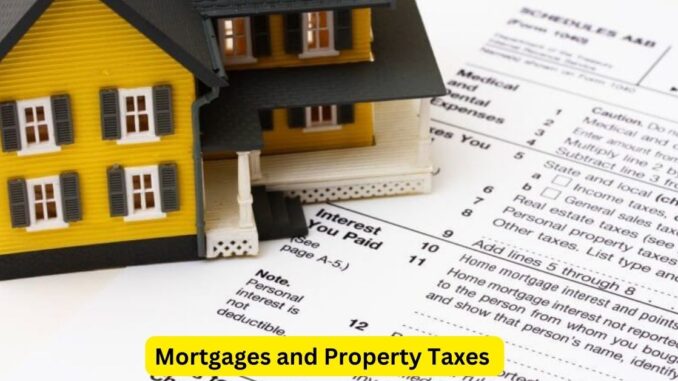
When you become a homeowner, you step into a realm of financial responsibility that goes beyond just your mortgage payments. One crucial aspect of homeownership is property taxes. In this article, we’ll explore the relationship between mortgages and property taxes, helping you understand how they work and their impact on your overall financial picture.
Property Taxes Explained:
Property taxes are levied by local governments to fund various public services, including schools, infrastructure, public safety, and more. The amount of property tax you owe is determined by the assessed value of your home and the tax rate in your locality. Local assessors evaluate your property’s value periodically, and your tax bill is calculated based on this assessment.
Mortgages and Property Taxes:
Your mortgage lender often plays a crucial role in managing your property taxes. Here’s how the two are interconnected:
- Escrow Accounts: Many mortgage lenders require borrowers to have an escrow account, also known as an impound account, for property taxes and homeowners insurance. Each month, in addition to your principal and interest payments, you’ll contribute a portion of your annual property tax bill to this escrow account.
- Lender’s Responsibility: When you have an escrow account, it’s the responsibility of your lender to pay your property taxes on your behalf. They will use the funds in the escrow account to make these payments when they come due. This ensures that you stay current on your property taxes.
- Predictable Monthly Payments: Escrow accounts provide a way for homeowners to budget for their property taxes. Rather than facing a large annual tax bill, you make smaller, predictable monthly payments as part of your mortgage payment.
Benefits of Escrow Accounts:
- Convenience: Escrow accounts simplify the process of paying property taxes. You don’t have to worry about setting aside money for taxes or remembering payment due dates.
- Staying Current: Escrow accounts ensure that you remain up-to-date on property tax payments, reducing the risk of late fees or tax liens on your property.
- Budgeting: By including property taxes in your monthly mortgage payment, you can budget more effectively, knowing that your housing-related expenses are consistent.
What If You Don’t Have an Escrow Account?:
Some homeowners opt to pay their property taxes directly to their local government rather than through an escrow account. If you choose this route, it’s crucial to:
- Keep track of property tax due dates and pay them on time to avoid penalties.
- Set aside money regularly to cover your property tax bill, ensuring you have enough funds when it’s due.
- Communicate with your lender if you plan to change your payment method to ensure a smooth transition.
In summary, property taxes are a significant part of homeownership, and they are often managed through escrow accounts set up by your mortgage lender. This arrangement provides convenience, ensures you stay current on your property taxes, and helps you budget effectively. However, if you choose not to use an escrow account, it’s essential to take responsibility for timely property tax payments to avoid financial complications. Understanding the relationship between mortgages and property taxes empowers homeowners to navigate their financial responsibilities with confidence.
Leave a Reply